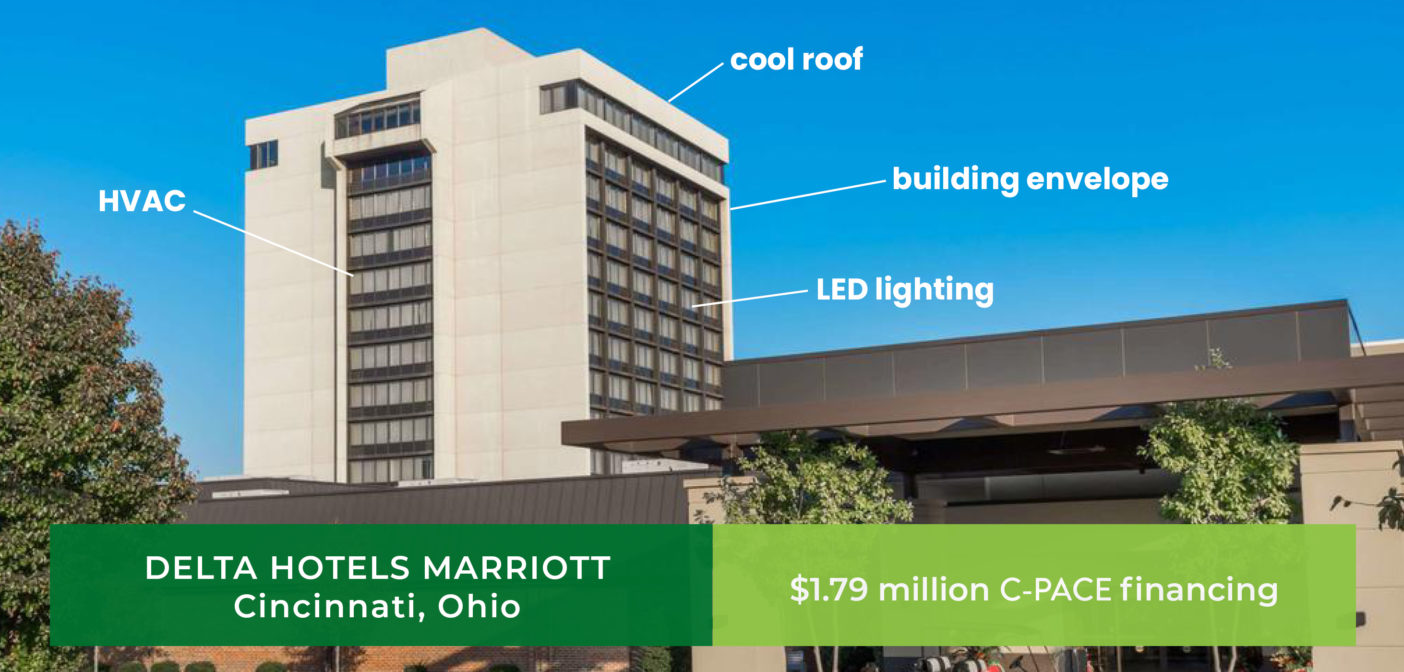NATIONAL REPORT—Resiliency, efficiency, and new technologies for energy management are trending topics across industries, but they’re not new. Consider that programs, such as the United States Environmental Protection Agency’s then-touted “Green Lights” program, which encouraged hoteliers to switch to efficient light bulbs, date back more than 30 years.
Today, green measures are framed in terms of climate and social responsibility, but all along the question of return on investment has been a driver for solutions.
“Without the economic advantages of energy efficiency and renewables, the greening of our building stock would occur at a much slower pace,” states Mike Moran, executive director of the Florida PACE Funding Agency. “Hotels nationally and particularly in Florida are looking to address energy-saving and critical infrastructure concerns such as wind resiliency while conserving capital.”
Enter PACE financing. The public program, available in more than 20 states, removes capital constraints for resiliency and energy saving measures by providing long-term non-recourse private financing through special tax assessments. PACE is an option for financing hotel property improvement plans, renovations and brand conversions, and to fulfill obligations under franchise agreements.
PACE has many advantages for the hospitality industry over other sources of CapEx, new construction or bridge financing. Payments are usually annual or semi-annual with the opportunity to delay repayment by capitalizing interest to allow owner time to stabilize property. Rather than short term bridge loans, PACE provides low cost construction capital for up to 30 years, meaning owners don’t need to seek permanent financing after renovating a new acquisition.
“PACE financing helps development and redevelopment projects pencil out, particularly in the hotel industry, where the alternative could be a value engineering decision that will ultimately turn off guests,” stated Eric Alini, managing partner of Counterpointe Sustainable Real Estate. “We have been able to help hotels with everything from retrofits and resiliency to renewable energy sources that attract guests and improve the bottom line.”
The classic model for PACE in hospitality is a retrofit.
For example, LDI Management Company, owner of a 13-story, 237-key hotel in Cincinnati, OH used $1.79 million in PACE financing from Counterpointe Sustainable Real Estate to support the repositioning of its property into the Delta Hotels Marriott Cincinnati. The 15-year financing covered approximately 25% of their total construction budget, and 100% of the project value attributable to elevator/escalator upgrades, high efficiency lighting fixtures, HVAC, water heater, building automation, commercial appliances and a cool roof.
Municipalities and states view PACE financing as an economic development and sustainability tool.
“Cincinnati has a clear economic development plan and we are proud to be a part of it,” stated Sanjay Tibrewal, co-owner of LDI Management Company. “Creating such a unique, sustainable place would not be possible without strong public private partnerships such as the C-PACE program.”
The program works for new construction and renewable energy projects as well. In California, Alini’s firm recently provided $12 million to the developers of The Tommie Hotel in Los Angeles and $5.4 million to a Hampton Inn & Suites in Rancho Cucamonga. Each project involves both energy efficiency measures such as HVAC and seismic strengthening, which is a unique attribute of the California program. Meanwhile the independent hotel franchise, King’s Inn of Anaheim and San Diego installed solar PV systems atop its facilities with a combined $1.97 million in PACE financing.
To learn more about incorporating PACE financing into your next project, please visit: https://info.counterpointesre.com/hotelbusiness
